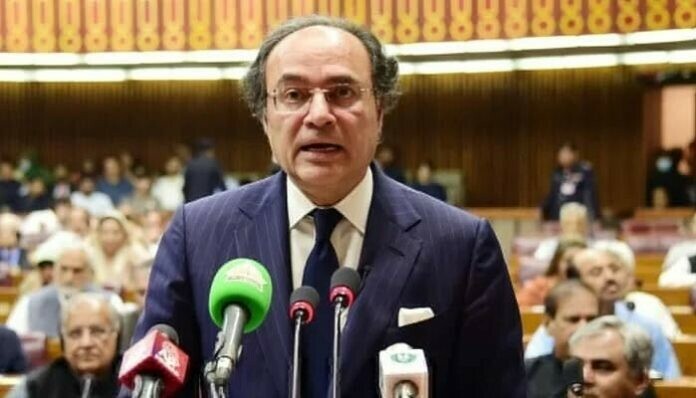Finance Minister Muhammad Aurangzeb informed the National Assembly that the government has decided to withdraw sales tax and duty exemptions on imported cotton and yarn to help local cotton farmers and revitalize the domestic textile industry.
During his winding-up speech on the Finance Bill 2024-25, the minister explained that an export facilitation scheme, introduced years ago, allowed exporters to import raw materials like cotton and yarn tax and duty-free to enhance exports. However, after reviewing data from the past three years, it was found that imported cotton and yarn were priced significantly lower than locally produced goods, which adversely impacted local farmers.
By removing these exemptions, the government aims to increase domestic cotton production, support the spinning mills, and conserve foreign exchange reserves.
Earlier, the government announced that it would impose an 18% sales tax on imported cotton yarn in the FY26 budget to support local yarn manufacturers. However, critical raw materials like cotton remain exempt from sales tax and GST when supplied locally, creating a policy inconsistency that hampers domestic producers and distorts market competition.
The All Pakistan Textile Mills Association (APTMA) welcomed the decision, urging the government to apply the 18% sales tax to all yarns and fabrics, including cotton and polyester, imported under the Export Finance Scheme (EFS).
Aurangzeb further highlighted ongoing efforts to revive the industrial sector, announcing that an industrial policy would be unveiled soon, along with consultations on an electric vehicle policy.
In terms of social welfare, the government has significantly increased the allocation for the Benazir Income Support Programme (BISP), raising it from Rs592 billion to Rs716 billion, benefiting nearly 10 million families. He also noted the launch of Pakistan’s first Skills Impact Bond with the British Asian Trust to provide skills training for the program’s recipients.
Additionally, the minister introduced a flagship agricultural initiative offering unsecured digital loans of up to Rs1 million to smallholder farmers for purchasing seeds, fertilizers, and diesel. An Electronic Warehouse Receipt System will also be introduced to help farmers store and sell their grain more effectively.
The government will also launch a 20-year affordable home financing scheme for low-income, first-time homebuyers.
Aurangzeb reported progress in women’s financial inclusion, with Rs14 billion in loans already disbursed to 193,000 women under the Women Inclusive Finance Programme. Another Rs14 billion is planned for the upcoming year, supported by the Asian Development Bank (ADB).
The minister also outlined revisions to the original budget, including further reductions in income tax for salaried individuals. Tax rates on income up to Rs3.2 million were reduced, and the tax for income between Rs600,000 and Rs1.2 million was cut from 5% to 1%.
Addressing concerns about pension taxation, Aurangzeb clarified that only individuals with pensions over Rs10 million annually would be taxed, with pensioners over age of 75 exempt from the tax.
h e said that the sales tax on imported solar panels was also reduced from 18% to 10%, affecting only 46% of components, leading to a modest 4.6% price increase.
Regarding the powers of the Federal Board of Revenue (FBR), the minister announced changes that require court warrants for arrests in cases below Rs50 million, with oversight from a three-member committee and mandatory presentation before a special judge within 24 hours.
Aurangzeb responded to concerns over restrictions on economic transactions by non-filers, stating that exemptions would apply to residential property purchases up to Rs50 million, commercial property up to Rs100 million, and vehicles up to Rs7 million, with possible future revisions by the federal government.
In his concluding remarks, the minister acknowledged the importance of national consensus for economic recovery and thanked members of Parliament, economic experts, and leaders of allied parties for their contributions to the budget formulation. He also expressed gratitude to Prime Minister Shehbaz Sharif and PML-N supremo Nawaz Sharif for their guidance.
“Let us work together to build a brighter future for Pakistan,” he concluded.






















